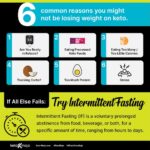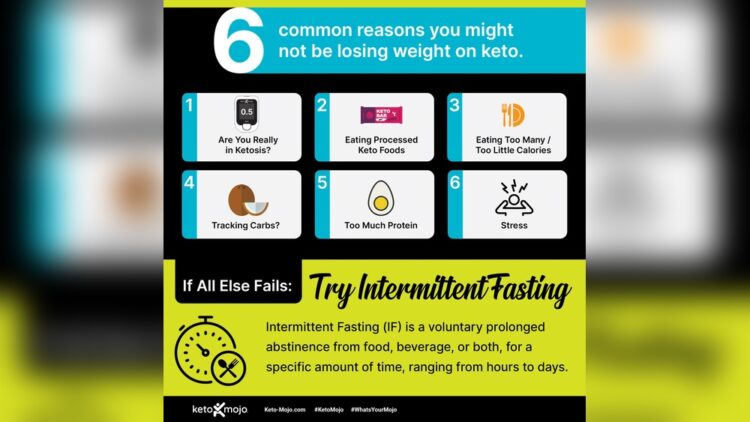If you can’t exercise, there are still ways to lose weight. Here’s how.
Losing weight without exercise is possible by paying attention to your diet and making healthy food choices. Additionally, incorporating small lifestyle changes like increasing your daily activity levels, reducing portion sizes, and managing stress levels can also contribute to weight loss.
It’s important to focus on creating a calorie deficit and making sustainable changes to your eating habits rather than relying solely on exercise for weight loss. By implementing these strategies, you can achieve your weight loss goals even without regular exercise.
Dietary Adjustments
Looking to lose weight but can’t exercise? Dietary adjustments could be the key. Explore effective strategies for adjusting your diet to achieve weight loss goals without relying on physical activity.
Healthy Eating Habits
When it comes to losing weight without being able to exercise, dietary adjustments become even more crucial. Healthy eating habits are the foundation of a successful weight loss journey. The key is to focus on foods that nourish your body and support your goals. Incorporating the following healthy eating habits can help you lose weight, even without exercise. – Eat a Variety of Nutrient-Dense Foods: Fill your plate with a colorful array of fruits, vegetables, whole grains, and lean proteins. These foods are packed with essential nutrients to keep you feeling full and satisfied. – Choose Lean Proteins: Opt for lean sources of protein such as chicken breast, turkey, fish, tofu, or beans. These protein sources are low in fat and high in nutrients, making them ideal for weight loss. – Limit Processed Foods: Processed and packaged foods often contain excessive amounts of added sugars, unhealthy fats, and preservatives. Minimize your intake of these foods and focus on whole, unprocessed options.Portion Control
Portion control plays a significant role in weight loss, especially when exercise is not an option. It’s easy to overeat, but implementing the following strategies can help you eat mindfully and maintain a calorie deficit. – Use Smaller Plates: When serving meals, opt for smaller plates and bowls. This visual trick can help you consume smaller portions while still feeling satisfied. – Be Mindful of Portion Sizes: Familiarize yourself with recommended portion sizes for different food groups. Use measuring cups or a food scale to portion out your meals, ensuring you don’t consume more calories than necessary. – Slow Down and Chew Thoroughly: Slowing down while eating allows your brain to register feelings of fullness. Chew each bite thoroughly to aid digestion and give your body time to recognize when it’s satisfied. – Pay Attention to Hunger and Fullness Cues: Listen to your body and eat when you’re truly hungry, not out of boredom or emotional triggers. Stop eating when you feel comfortably full, rather than pushing yourself to finish your plate. By implementing healthy eating habits and practicing portion control, you can achieve your weight loss goals even without exercise. Remember to focus on nourishing your body with nutrient-dense foods and being mindful of portion sizes. Making these dietary adjustments will contribute to sustainable weight loss and overall wellbeing.Lifestyle Changes
When it comes to losing weight without exercise, lifestyle changes play a crucial role. By making small modifications to your daily routine, you can gradually achieve your weight loss goals. In this article, we will explore two key aspects of lifestyle changes: increasing physical activity and reducing sedentary behavior.
Increasing Physical Activity
To lose weight without exercise, it is important to incorporate more physical activity into your daily routine. Here are some simple ways to increase your activity levels:
- Take the stairs instead of the elevator or escalator – this can help burn extra calories throughout the day.
- Walk or bike to your destination whenever possible – not only will this provide a great form of exercise, but it is also a greener alternative to driving.
- Engage in active hobbies such as gardening, dancing, or playing a sport – find activities that you enjoy and make them a regular part of your routine.
By incorporating these small changes into your daily life, you can gradually increase your physical activity levels and boost your weight loss efforts.
Reducing Sedentary Behavior
Reducing sedentary behavior is another important aspect of losing weight without exercise. Here are some tips to help you reduce your sedentary time:
- Stand up and stretch every hour if you have a desk job – sitting for long periods can slow down your metabolism and hinder weight loss.
- Take short breaks to walk or do light exercises throughout the day – this can help break up prolonged periods of sitting and increase calorie burn.
- Limit your screen time, especially in the evenings – excessive TV watching or using electronic devices can lead to mindless snacking and reduced physical activity.
By incorporating these strategies into your daily routine, you can reduce sedentary behavior and create a more active lifestyle, even without engaging in structured exercise.
In conclusion, lifestyle changes are key when it comes to losing weight without exercise. By increasing your physical activity and reducing sedentary behavior, you can make significant progress towards your weight loss goals. Remember, consistency and patience are important as results may not be immediate. With dedication and persistence, you can achieve a healthier body and lifestyle.
Mindful Eating Strategies
Discover effective mindful eating strategies to lose weight without relying solely on exercise. By slowing down, savoring each bite, and paying attention to hunger and fullness cues, you can make informed food choices and achieve your weight loss goals.
Practicing Mindful Eating
Practicing mindful eating is a powerful tool for individuals who want to lose weight but are unable to engage in regular exercise. Mindful eating involves paying full attention to the experience of eating, without distractions, and truly savoring each bite. By focusing on the present moment and being aware of physical hunger and fullness cues, this strategy can help create a more positive relationship with food and promote healthier eating habits. Here are some effective mindful eating strategies to help you on your weight loss journey.Listening To Hunger And Fullness Cues
One key aspect of mindful eating is learning to listen to your body’s hunger and fullness cues. Instead of eating out of habit or based on external cues, such as the time of day or portion sizes, pay attention to your body’s signals. Start by asking yourself: Am I truly hungry or just eating out of boredom or emotions? Am I satisfied and comfortably full, or am I eating past the point of fullness? By tuning in to these cues, you can better understand when your body needs nourishment and when it has had enough. Here are some tips to help you listen to your hunger and fullness cues:- Eat when you are moderately hungry, not starving.
- Eat slowly and savor each bite, enjoying the flavors and textures.
- Pause throughout your meal to check in with your body and assess your level of fullness.
- Stop eating when you feel comfortably satisfied, before reaching the point of feeling overly full.
- Avoid distractions while eating, such as watching TV or scrolling through your phone, to stay present and focused on your meal.
Medical Interventions
If you’re struggling to lose weight due to physical limitations or other health reasons, don’t lose hope. Medical interventions can offer effective solutions to help you achieve your weight loss goals. In this article, we’ll explore two common medical interventions: prescription medications and weight loss surgery.
Prescription Medications
If traditional exercise is not an option for you, prescription medications may be worth considering. These medications are designed to help suppress your appetite, reduce calorie absorption, or increase metabolism to aid in weight loss. Here are a few commonly prescribed weight loss medications:
| Medication | How it Works | Potential Side Effects |
|---|---|---|
| Phentermine | Suppresses appetite by affecting the central nervous system | Nervousness, increased heart rate, insomnia, dry mouth |
| Orlistat | Reduces fat absorption in the gastrointestinal tract | Oily stools, excessive bowel movements, stomach cramps |
| Lorcaserin | Increases feelings of fullness by affecting the brain | Headache, dizziness, nausea, constipation |
It’s important to note that these medications should only be taken under the supervision of a healthcare professional. They may not be suitable for everyone and can have potential side effects.
Weight Loss Surgery
When other weight loss methods prove ineffective, weight loss surgery, also known as bariatric surgery, can be a viable option. This procedure involves making changes to your digestive system to help you lose weight and reduce the risk of obesity-related health issues. Here are some commonly performed weight loss surgeries:
- Gastric Bypass: This surgery creates a smaller stomach pouch and reroutes the small intestine, restricting the amount of food you can consume and reducing nutrient absorption.
- Gastric Sleeve: In this procedure, a portion of the stomach is removed, leaving a smaller sleeve-shaped stomach that limits food intake while still allowing normal digestion.
- Gastric Banding: This surgery involves placing an adjustable band around the upper part of the stomach, creating a smaller pouch and restricting food intake.
Weight loss surgery can provide significant and long-term weight loss, but it should be seen as a last resort when other methods have been unsuccessful. It’s important to consult with a healthcare professional and carefully consider the risks and benefits before undergoing any surgical procedure.
Support And Accountability
Support and accountability are essential for losing weight when exercise is not an option. With the right guidance and motivation, you can achieve your weight loss goals even without physical activity.
Working With A Healthcare Professional
Losing weight when you can’t exercise can feel like an uphill battle. However, with the right support, you can overcome this challenge. One effective way to obtain the support and guidance you need is by working with a healthcare professional. These experts, such as doctors or dietitians, can tailor a weight loss plan to your specific needs and limitations.
A healthcare professional can help you evaluate your current habits and suggest small changes that can lead to big results. They can provide you with personalized meal plans and offer advice on portion control, as well as recommend healthy eating alternatives. With their expertise, you can make sustainable changes to your diet that will contribute to weight loss.
Moreover, a healthcare professional can monitor your progress regularly and provide you with the necessary accountability. They can offer encouragement and motivation when you need it most, ensuring you stay on track with your weight loss goals. You’ll have someone to turn to when you have questions or concerns, making the journey towards weight loss less daunting.
Remember, when it comes to losing weight without exercise, seeking guidance from a healthcare professional can make all the difference. They have the knowledge and experience to assist you in achieving your goals, making your weight loss journey less challenging and more rewarding.
Joining A Support Group
In addition to working with a healthcare professional, joining a support group can provide you with the accountability and encouragement you need to succeed. Connecting with others who are facing similar challenges can help you stay motivated and focused on your weight loss journey.
Support groups offer a safe and non-judgmental space where you can share your experiences, struggles, and successes. You can learn from others who have already achieved their weight loss goals or are in the process of doing so. By listening to their stories and advice, you might discover new strategies and techniques that can work for you.
Being part of a support group also gives you the opportunity to provide support and encouragement to others. By sharing your own experiences and offering advice, you can inspire and help others on their weight loss journey. The mutual support and understanding within a support group can be a powerful motivator.
If there aren’t any local support groups in your area, consider joining an online community. There are numerous online platforms and forums where you can connect with individuals who share your goals and challenges. Virtual support groups can provide the same level of accountability and motivation, even if you can’t physically meet up.
By working with a healthcare professional and joining a support group, you can enhance your weight loss journey. With their guidance and encouragement, you can stay accountable and motivated, making it easier to shed those unwanted pounds.
Frequently Asked Questions On Lose Weight Can’t Exercise
Faq 1: Can You Lose Weight If You Can’t Exercise?
Yes, you can still lose weight without exercise by focusing on your diet and making healthy food choices.
Faq 2: How Can I Lose Weight Without Exercising?
To lose weight without exercising, you can try to reduce your calorie intake, eat smaller portions, choose nutritious foods, and stay hydrated.
Faq 3: Are There Any Alternatives To Exercise For Weight Loss?
While exercise is beneficial, you can still achieve weight loss by making dietary changes, practicing portion control, and maintaining a healthy lifestyle overall.
Conclusion
Losing weight without exercise may seem challenging, but it’s not impossible. By focusing on healthy eating habits, portion control, and incorporating physical activities into your daily routine, you can still achieve your weight loss goals. Remember, consistency is key, so stay committed and make lifestyle changes that are sustainable in the long run.
With determination and a balanced approach, you can achieve a healthier, happier version of yourself. Get started on your weight loss journey today!
{ “@context”: “https://schema.org”, “@type”: “FAQPage”, “mainEntity”: [ { “@type”: “Question”, “name”: “FAQ 1: Can you lose weight if you can’t exercise?”, “acceptedAnswer”: { “@type”: “Answer”, “text”: “Yes, you can still lose weight without exercise by focusing on your diet and making healthy food choices.” } } , { “@type”: “Question”, “name”: “FAQ 2: How can I lose weight without exercising?”, “acceptedAnswer”: { “@type”: “Answer”, “text”: “To lose weight without exercising, you can try to reduce your calorie intake, eat smaller portions, choose nutritious foods, and stay hydrated.” } } , { “@type”: “Question”, “name”: “FAQ 3: Are there any alternatives to exercise for weight loss?”, “acceptedAnswer”: { “@type”: “Answer”, “text”: “While exercise is beneficial, you can still achieve weight loss by making dietary changes, practicing portion control, and maintaining a healthy lifestyle overall.” } } ] }









Leave a Reply